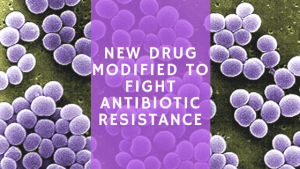The drug vancomycin has always been a difficult one for bacteria to resist. It’s been used to treat bacterial infections for the past sixty years, and only recently have some bacteria begun to develop a resistance to it.
Still, any bacterial resistance is a bad sign, especially as many doctors and pharmacists are beginning to worry that so-called “superbugs” will one day render life-saving antibiotics useless. Overprescription of antibiotics, including preventative antibiotics and those used on livestock, has caused many once easily-curable diseases to evolve an immunity to antibiotic cures.
But now, some scientists from the Scripps Research Institute in California believe they’ve come up with an antibiotic too powerful for even the most antibiotic-resistant superbugs to survive. In a publication in the Proceedings of the National Academy of Sciences, a team of researchers announced that they had modified vancomycin to make it it 25,000 times more effective against vancomycin-resistant bacteria than non-modified vancomycin.
These modifications included overcoming vancomycin’s molecular basis, which prevents bacteria from evolving immunity and creating two independent modes of action, meaning that the drug targets the disease in multiple ways. Put together, these modifications mean that vancomycin should be effective in fighting antibiotic-resistant strains, and avoid creating new strains that are resistant to the modified antibiotic.
Among other diseases, vancomycin is used to treat MRSA, an infection notorious for its antibiotic resistance. It has also been found effective against colitis, sepsis, and diarrhea.
Although some publications have suggested that the modified vancomycin is a miracle drug marking the end of superbugs forever, in reality it will only affect certain infections. Microbiologists have pointed out that vancomycin only impacts gram-positive bacteria, a designation that includes staphylococci, pneumococci, and the bacteria responsible for diphtheria and anthrax. A lot of these infections aren’t frequently caused by resistant strains…yet. Meanwhile, gram-negative bacteria, including those that cause infections such as E. coli and Klebsiella, cannot be fought with vancomycin, beefed-up or otherwise.
Still, this could be a great stride forward in the fight against antibiotic resistance. The next step will be to test the drug outside of the lab, in animal and human trials. So despite the encouraging results that we’ve seen in lab testing, it will be at least another five more years before we could see this drug on the market. In the meantime, scientists will also need to work on developing new powerful antibiotics, in order to stay ahead of these rapidly-evolving bacteria.


